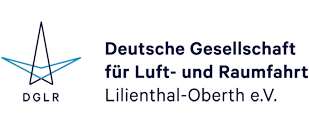DGLR-Publikationsdatenbank - Detailansicht
Autor(en):
T. Biehle, J.R. Noennig, N. Vadiati
Zusammenfassung:
Bei der verkehrlichen Erschließung des urbanen Luftraums für Drohnen in Deutschland haben Kommunen eine Schlüsselrolle. In der Planung lokaler Verkehrsleitsysteme, sogenannter U-Spaces, sind sie einerseits aufgefordert, kommunale Belange in das Ausweisungsverfahren einzubringen, andererseits stehen sie als Bindeglied zur Stadtgesellschaft in der Pflicht, bürgerschaftliche Interessen gegenüber der zuständigen Ausweisungsbehörde auf Bundesebene zu vertreten. Auf Grundlage eines Experimentes mit Behördenvertreterinnen in Hamburg untersucht der vorliegende Artikel diese Abwägungsbedarfe. Ergebnisse zeigen, inwiefern die Chance auf eine steigende Attraktivität des Wirtschaftsstandorts und eine Verbesserung der kommunalen Daseinsvorsorge durch den U-Space einerseits mit wachsenden Abstimmungs-, Steuerungs- und Ressourcenbedarfen andererseits einhergeht. Neben dem Schutz kulturell, sozial und ökologisch sensibler Gebiete bedarf es vor allem eines aktiven Austauschs mit der Bevölkerung und ihrer unmittelbaren Beteiligung. Der Artikel schließt mit Empfehlungen für die Planung von U-Spaces im Sinne einer nachhaltigen Stadtentwicklung.
Zusammenfassung (EN):
Municipalities play a key role in opening up urban airspace for drones in Germany. When planning local traffic management systems, so-called U-Spaces, they are, on the one hand, required to incorporate municipal concerns into the designation process, and on the other hand, as a link to urban society, they are obliged to represent civic interests to the responsible designation authority at the federal level. Based on an experiment with representatives of authorities in Hamburg, this article examines these balancing needs. The results show to what extent the chance of increasing the attractiveness of the business location and improving municipal services through the U-Space goes hand in hand with growing needs for coordination, control and resources on the other. In addition to protecting culturally, socially and ecologically sensitive areas, what is particularly required is an active exchange with the population and their direct participation. The article concludes with recommendations for planning U-Spaces in the spirit of sustainable urban development.
Veranstaltung:
Deutscher Luft- und Raumfahrtkongress 2023, Stuttgart
Verlag, Ort:
Deutsche Gesellschaft für Luft- und Raumfahrt - Lilienthal-Oberth e.V., Bonn, 2023
Medientyp:
Conference Paper
Sprache:
deutsch
Format:
21,0 x 29,7 cm, 10 Seiten
URN:
urn:nbn:de:101:1-2023102712535315016261
DOI:
10.25967/610529
Stichworte zum Inhalt:
U-Space, Städte
Verfügbarkeit:
Kommentar:
Zitierform:
Biehle, T.; Noennig, J.R.; Vadiati, N. (2023): Beteiligung kommunaler Stellen im U-Space Ausweisungsverfahren. Deutsche Gesellschaft für Luft- und Raumfahrt - Lilienthal-Oberth e.V.. (Text). https://doi.org/10.25967/610529. urn:nbn:de:101:1-2023102712535315016261.
Veröffentlicht am:
27.10.2023
